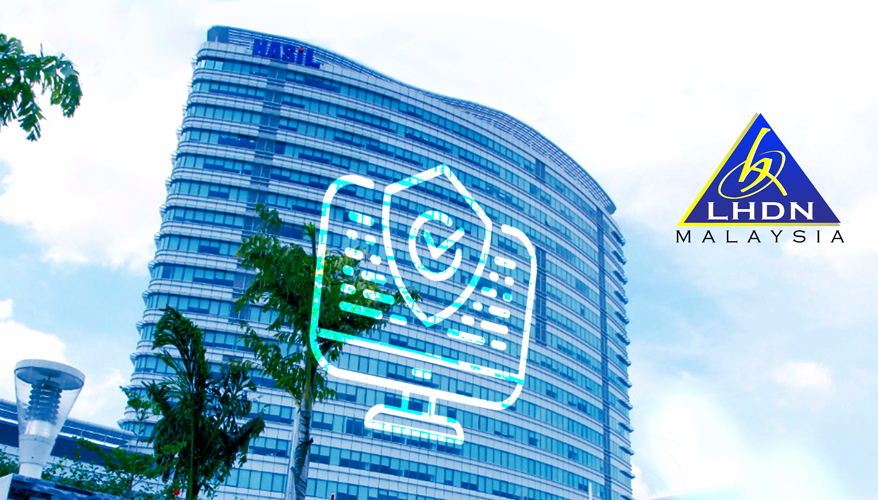
E-Invoicing in Malaysia: Important Terms You Must Know
August 26, 2024
Continuous Transaction Control (CTC) Model in Malaysia’s E-Invoicing: A Step-by-Step Guide for Businesses
September 25, 2024How IRBM is Ensuring Data Security and Privacy Monitoring in Malaysia

The MyInvois System, developed by the Inland Revenue Board of Malaysia (IRBM), is fortified with advanced network and security monitoring tools designed to protect data security and privacy comprehensively.
IRBM is at the forefront of ensuring rigorous data protection strategies. By implementing advanced technologies and adhering to international standards like ISO/IEC 27001, IRBM is committed to safeguarding sensitive information. Their compliance with Malaysia’s Personal Data Protection Act (PDPA) of 2010, further underscores their dedication to maintaining data integrity and privacy.
This article discusses how IRBM’s proactive measures are setting a new standard for data security and privacy monitoring in Malaysia.
IRBM is at the forefront of ensuring rigorous data protection strategies. By implementing advanced technologies and adhering to international standards like ISO/IEC 27001, IRBM is committed to safeguarding sensitive information. Their compliance with Malaysia’s Personal Data Protection Act (PDPA) of 2010, further underscores their dedication to maintaining data integrity and privacy.
This article discusses how IRBM’s proactive measures are setting a new standard for data security and privacy monitoring in Malaysia.
Why is data security and privacy monitoring important?
1. Protection of Sensitive Information
- Confidentiality: Data security ensures that sensitive information, such as personal details, financial data, and intellectual property, is protected from unauthorized access. This is vital for maintaining the privacy of individuals and the integrity of businesses.
- Preventing Data Breaches: Effective monitoring helps identify potential threats and vulnerabilities before they can be exploited, reducing the risk of data breaches that can result in significant financial loss and reputational damage.
2. Regulatory Compliance
- Legal Requirements: Many countries, including Malaysia, have stringent data protection laws that mandate how personal data should be handled and protected. Compliance with these regulations, such as the Personal Data Protection Act (PDPA) of 2010, in Malaysia, is essential to avoid legal penalties and maintain trust with customers and stakeholders.
- Global Standards: Adhering to international data security standards, like ISO/IEC 27001, not only ensures compliance with local laws but also positions organizations to compete globally by demonstrating their commitment to data protection.
3. Business Continuity and Reputation
- Avoiding Operational Disruptions: Data security is integral to ensuring that business operations continue smoothly without interruptions caused by cyberattacks, data loss, or unauthorized access. This is especially important in industries that rely heavily on data, such as finance and healthcare.
- Maintaining Trust: Companies that can demonstrate robust data security practices are more likely to earn and maintain the trust of their business partners and customers. This trust is crucial for business reputation and customer loyalty, especially in an era where data breaches are highly publicized.
4. Ethical Responsibility
- Protecting Individuals’ Rights: Beyond legal compliance, organizations have an ethical responsibility to protect the privacy of individuals. Proper data security practices ensure that personal information is used and stored responsibly, respecting the rights of data subjects.
- Preventing Misuse of Data: Monitoring helps ensure that data is not misused for purposes other than those for which it was collected, thereby protecting individuals from identity theft, fraud, and other forms of exploitation.
Here’s How IRBM is Ensuring Data Security and Privacy Monitoring in Malaysia in 4 Steps:
- Assessing Data Protection Requirements IRBM conducts a thorough evaluation of the various types of data collected, processed, stored, and shared within the MyInvois System. This comprehensive assessment includes understanding legal and contractual obligations, enabling the precise definition of data security and privacy policies. By scrutinizing the data environment, IRBM can tailor its security protocols to address the specific needs of the system and its users.
- Implementing Robust Data Protection Controls To safeguard e-Invoice data, IRBM employs a blend of technical and organizational controls that prevent unauthorized access, modification, loss, or disclosure. These measures include data encryption to ensure integrity and confidentiality, authentication mechanisms to verify user identities, and access control protocols that limit data access to authorized personnel only. Moreover, IRBM integrates regular data backups, firewalls to block external threats, antivirus software to detect and eliminate malware, and access logging to audit and monitor data usage effectively.
- Monitoring and Auditing Data Protection Practices IRBM consistently benchmarks its data protection measures against established objectives and industry best practices to ensure their effectiveness. This includes continuous system monitoring to detect any anomalies or potential security breaches. In the event of a data breach or violation, IRBM conducts thorough investigations to identify root causes and swiftly resolve issues, thereby refining its data protection practices.
- Commitment to Continuous Improvement Drawing from ongoing monitoring and auditing results, IRBM is dedicated to the continuous enhancement of its data protection strategies. This involves addressing any identified gaps or weaknesses and seizing opportunities for improvement. By regularly updating its data protection policies, introducing advanced security controls, and improving performance metrics, IRBM ensures that the MyInvois System remains robust against evolving threats, maintaining a secure and reliable platform for users.




